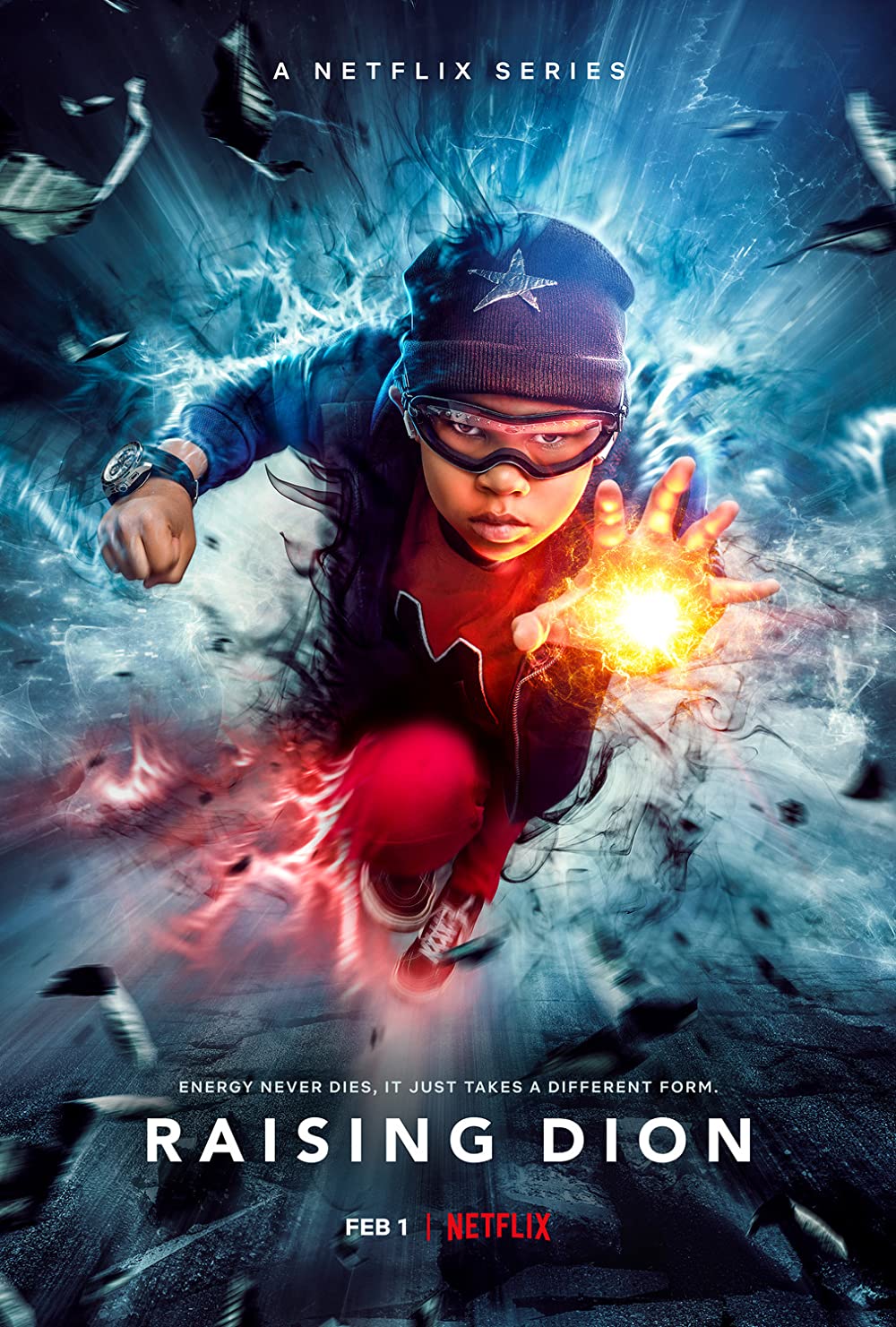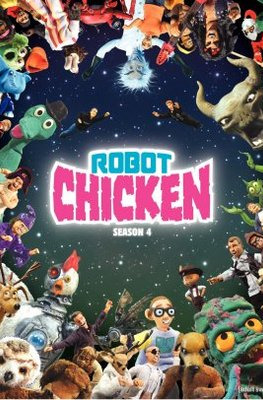Mentor Series: Write A TV Bible That Sells
Other education that may be of interest to you:
How To Write A Comedy Pilot Executives Will Want To Read
In this Stage 32 Next Level Webinar, your host Michael Poisson will teach you how to write a kick-ass comedy pilot that will get executives’ attention. This webinar is not only about how to properly execute writing a comedy pilot, but also about how to make it your strongest sample so that it can get noticed! You will leave the webinar knowing: The 3 most important things Producers/Execs look for in a pilot as they relate to concept, structure and voice. How to properly highlight your unique comedic voice and stuff your script with laughs. How to create a crisp 1-2 sentence pitch that will get executives excited about your idea. How to navigate the competitions and fellowships. How to think from a Producer/Manager/Executives POV and understand what they're looking for so you can apply it to your script. Michael Poisson is a former Director of Development who's worked for Ryan Reynolds TV production company DarkFire TV, Krysten Ritter's company Silent Machine and CAA and is now a writer on Netflix's Raising Dion. This background gives has given Michael a unique perspective for what kind of script stands out among the hordes on everyone’s “Weekend Read” lists and he is here exclusively with Stage 32 to share that knowledge with you. PRAISE FOR MICHAEL'S TEACHINGS: He was amazing -- professional, articulate and knew his subject inside-and-out! – Jan S. It was very obvious Michael knows [his stuff]. He was very organized and I feel like he answered many questions that I've had for years. Thank you so much. – Betty S. Michael was sensational; one of the few who can actually DO a webinar and keep an interest. Nice voice inflection and tone; no distracting "um's" and such. Great material; learned a ton! - Geno S. Very informative and in great detail and explanation, Michael. Time very well spent. – Jean B. Excellent seminar with relevant information. Great job. – Matthew M. I really found the examples [he] references on current programs and series very useful. The information was concise and allowed me to visualize my next steps. – Ashanti G. He was excellent! – Tina F. Good information, well thought out, organized and easy to follow. Many useful takeaways. Thanks Michael!! – Lesa B.
How to Write a TV Series Bible
In the competitive TV and streaming landscape of serialized dramas, complex comedies, and sprawling genre epics, series bibles have become essential selling tools to help writers illustrate their visions. A dynamic and intriguing bible can create interest in your project, and push your pitch or spec script over the edge to a sale. It’s your chance to lay out the larger arc of your story, list examples of future episodes, and explain the broad themes your show will explore. It conveys confidence to producers and executives by saying: “I've thought about this in the long run, and I have a slew of awesome ideas to explore in series.” Because there is no standard industry way to format your bible, they can be extremely confusing to create. Executives receive bibles as small as 4 pages (a mini-bible, really) and as long as 27 pages. Should it include your personal connection to the material? In-depth character bios? Visual motifs? Artist’s renderings of the setting and characters? Although bibles can vary greatly from project to project, there are some general rules and strategies to follow to make sure yours stands out from the pack as professional, polished, and powerful. Michael Poisson's career is one that has been filled with incredible ambitious drive and creative passion. He is a veteran television executive and is currently a writer on HBO Max's Tom Swift and previously wrote on the hit Netflix series Raising Dion, as well as Adult Swim's Robot Chicken. But Michael’s story begins with his first industry job at CAA where he broke the glass ceiling for men everywhere and became their first ever male receptionist (before then, CAA had segregated based on sex: guys in the mailroom and girls in reception). From there he worked his way up to Rick Lefitz’s desk at CAA in TV Packaging, before jumping to Ryan Reynolds and Allan Loeb’s TV pod, DarkFire TV, for two years. He moved on to work as the Director of Development at Krysten Ritter’s company, Silent Machine Entertainment, where he worked closely with writers to develop their ideas to pitch to studios and networks. Michael has also had numerous successes as a screenwriter. In what has become an ultra-competitive environment, Michael will teach you the ins and outs of creating a compelling and willing TV bible. Starting with the proper formatting, how to introduce dynamic characters, and moving through how to include active and engaging episode examples, Michael will show you what grabs and keeps an executive's attention. Michael will also discuss artwork, articles and visual aids and whether your bible truly needs them or if they should be left out entirely. He will show you how to create and present carefully crafted, season long arcs that include strong and relatable themes. Always a challenge for writers, producers, and filmmakers putting together a series bible, Michael will teach you how to be clear and concise in explaining your direction for the series. He will spend quality time explaining and teaching the importance of a strong wrap up and closing beat and how to nail both. Michael will even teach you how to identify and decide which network or platform may be best for your show. PRAISE FOR MICHAEL'S TEACHINGS: "Answered so many of my questions about bible writing. Took away my fears as well! I can't wait to get started." -- Mia L. "Demystification complete." -- Lorraine R. "Michael has energy and knowledge to spare. Best investment I've made in years." -- Regina K. "Some really great organizational/structural ideas for a bible." -- Rebecca S
Beyond The Page: The Business Side of Breaking In & Getting Work as a Screenwriter
Learn directly from Michael Poisson, the former Director of Development at Silent Machine Entertainment, Krysten Ritter’s production company that has a first look deal at Universal TV. Michael is also a comedy writer who used his insider knowledge to land a manager, and get two projects in development at TV production companies. In this Stage 32 Next Level Webinar, your host Michael Poisson will guide you through the business side of how to become a working writer in Hollywood. Writing an awesome script is only part of the process for becoming successful in this industry. Having worked on various projects from both the executive side, as well as the writer side of things, Michael has obtained great insight for how to avoid the difficult terrain when meeting and working with producers, studios, and networks. And while the process of finding a manager or agent is daunting, keeping a strong relationship with them so that they’re doing the most for you as their client can be equally difficult. Michael will share with you his insider knowledge to help: keep your writing on track, your meetings fruitful, and your industry contacts strong. If you’ve ever wondered what you should talk about in “general meetings”, how to take notes from friends/producers/execs that you don’t agree with, or how to be a more prolific writer, this webinar is for you!
How to Make Short-Form Content that Launches, Expands & Accelerates Your Acting Career - with 7 Video Examples
As actors, we're living in a whole new world. Self-audition tapes, online auditions, virtual acting classes...Things have changed tremendously over the last few years and those ahead of the curve are doing everything possible online to win more champions of their work and land more jobs. Many actors have embraced a "control what you can control" mindset. This includes creating short form content as a way to control and film their own material, build up a library of acting samples, and showcase their versatility and talents. The idea of creating and filming your own content, especially for actors accustomed to only being in front of the camera, can be daunting. But seriously, it doesn't have to be. In fact, if you can knock down the mental walls associated with taking the step toward controlling your own content, and thereby your brand and the course of your career, you will find yourself with more freedom and creative inspiration than ever before. And we're here to help you take a sledgehammer to those mental walls and get you moving. Elisha has guest starred on the Emmy nominated/winning shows Better Call Saul, The Newsroom, Mad Men, Southland, Up All Night, The New Normal and CSI:NY and voiced the character of Jimmy Olsen and B'dg on DC Nation Shorts's Tales of Metropolis and Super-Pets. He was also in the highly acclaimed Sundance feature Frank & Lola starring Michael Shannon and Imogen Poots. Elisha is no stranger to creating content to help accelerate his acting career. He got his start writing web-series with his friends from Emerson College, including Downers Grove, which was picked up by Warner Brothers Studio 2.0. Aside from all the roles mentioned above, Elisha's content creation strategy helped him land commercials for Mike's Hard Lemonade, Time Warner Cable, Samsung, Wendy's, McDonald's, Nintendo 3DS and Hanes. In this comprehensive and detail filled webinar, Elisha will teach you how to create short form content to launch, accelerate, and expand your acting career. He will teach you how to identify your career blueprint by asking 2 simple, but important questions. From there, he'll ask you to get real and talk through your true goals so that you know exactly what kind of short form content you'll need to make. He will show you 7 examples of short form content to open your mind, spark your creativity and help you identify the direction you want to take with your content. He will teach you the 3 boxes you need to check to make sure your idea is a great one. He will then dive into how to make cost-efficient content and how not to overthink the process. He'll tell you how to build your team - again, on the quick and cheap. And of great importance, Elisha will teach you where to release your content, assuring that you get not only the biggest audience, but the most concentrated one based on your overall goals. PRAISE FOR ELISHA'S TEACHINGS: "Brilliant. In every way, brilliant." - Kim G. "So f****** inspiring." - Laura P. "Yes, yes, yes. So tired of giving away my power. Elisha, you're my hero" Samantha K. "This is a step I've always wanted to take. I've seen my acting friends create content to great success. I just didn't know if I could create content that mattered. Now I do." - Joshua W. "I'm inspired and ready to rock." - Montell S.
How to Eliminate Creative Blocks: 6 Steps to Refine Your Creative Process
"I know of few others who have "been there, done that" as well as Chris has over the years. His willingness to share his experiences with the future generations is a gift that few can give." - Quincy Jones Learn directly from Chris Boardman, 6 time Emmy Award winner and Academy Award nominated composer. Whether you are an actor looking to find the inspiration to perform, a writer looking to develop an authentic idea, or a cinematographer looking to shape your canvas, this webinar will help you get unstuck and into the creative zone for that process. Or, as a filmmaker looking to tell your story or a gaffer looking to light the beauty of the story you are about to shoot, take time to learn from Chris the tools to be effectively in that creative zone. All professions in the creative industry can benefit from this webinar. The only chance we have to connect with an audience as a storyteller is to be brutally honest and vulnerable. And, during that process sometimes it's hard to stay focused and determine a clear path to get there. All of us in the creative arts deal with these issues. Those who have sustaining careers learn how to turn on their creative engine at will. It’s not an accident. It’s predictable. It’s practiced. It’s what separates the amateurs from the professionals. It’s time for you to develop your own streamlined creative process and become more productive than ever before. In this Stage 32 Next Level Webinar, 6 time Emmy Award winner Chris Boardman will take you through the 6 steps of unblocking creative roadblocks, understanding your own personal creative process and using it as effectively as you can. You’ll learn why you aren’t as productive as you can be, and how to get yourself unstuck and deliver creative yet consistent results. No matter how trivial your creative blocks may seem, or how self-conscious you may feel, you are not alone...you are in great company.






